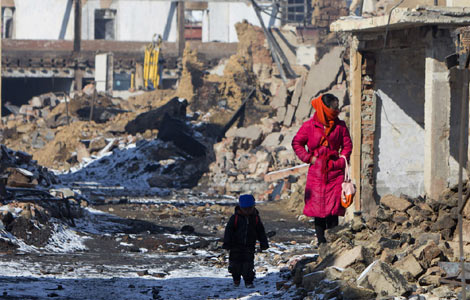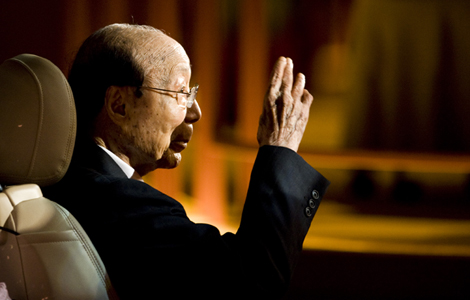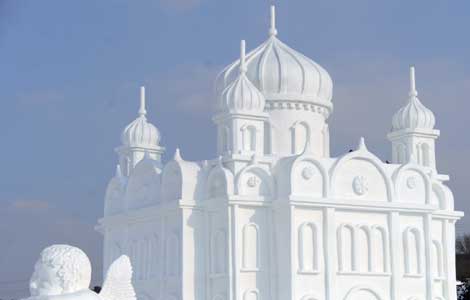No luxury clubs in parks
Updated: 2014-01-16 07:37
(China Daily)
|
|||||||||||
Have you seen luxuriously decorated buildings that occupy large portions of public parks, with "members only" notice hanging on their gates? They are expected to disappear, going by a notice issued by the Beijing municipal government. The notice says all luxury entertainment clubs in public parks must be shut down and from now on, no part of a park would be rented out for similar use.
Many media outlets have hailed the move. Since parks are built on public land and run on public budgets, they are expected to serve the public. Luxury entertainment clubs thus violate the rights of the common people by monopolizing public resources for the use of a selected few.
Besides, officials use public money to pay most of the bills in such luxury clubs. With the country's top leadership banning extravagance at official events last year, many officials chose to hold lavish parties - with taxpayers' money, of course - in such clubs. So the ban will also help check corruption.
These clubs have always been illegal, said an editorial in Beijing News on Wednesday, while praising the move to ban them. But it also called for a thorough investigation into how luxury clubs came to be built in parks in the first place and demanded that those responsible for the illegal act be punished.
According to the Beijing Regulation on Parks, enforced in 2003, "no individual or company may change the use of public parks or occupy its land without permit". In other words, it is illegal to build luxury clubs on public parks.
So, how did these illegal buildings come into being and who are the people responsible for them? Media reports have highlighted the existence of entertainment clubs in public parks over the past several years, but we have rarely heard anybody being pulled up, let alone punished, for the unlawful act.
Of course, lack of funds may compel maintenance officials to rent out part of some public parks to earn some money for their upkeep. But wouldn't that require a systemic change in the funding of public parks?
The campaign to shut down luxury entertainment clubs in public parks is welcome. But the public needs answers to the above questions, too, to believe that parks will never be used by some rich and powerful people for their esoteric interests.
Related Stories
CPC anti-decadence campaign hammers clubbing 2013-12-24 09:59
Private clubs are targeted by anti-graft campaign 2013-12-24 07:13
Beijing's fight club 2013-12-15 08:13
Today's Top News
Party school official suspended after scandal
China Mobile and Apple 'tie the knot'
Nation's airlines ready for rush
UK dumps China's telecom equipment
At least 16 dead in E China factory fire
Hollande responds to affairs reports
Li offers Bulgaria help with big projects
Xi calls for reform to fight graft
Hot Topics
Lunar probe , China growth forecasts, Emission rules get tougher, China seen through 'colored lens', International board,
Editor's Picks

|

|

|

|

|

|





